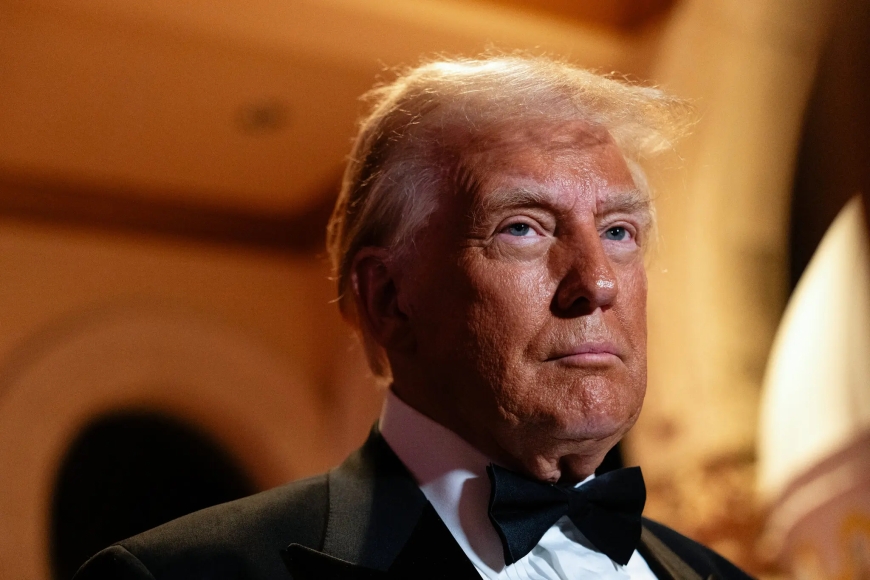A Nation Divided: Trump's America vs. Reality Viewpoint
Donald J. Trump's portrayal of America as a country in crisis as he gets ready to take the oath of office for a second time runs rather opposite to statistics that point otherwise. Although Trump's narrative presents the United States as rife with crime, anarchy, and economic misery, many important indicators point to an economy and society that have achieved substantial progress under President Biden's direction.

Donald J. Trump's portrayal of America as a country in crisis as he gets ready to take the oath of office for a second time runs rather opposite to statistics that point otherwise. Although Trump's narrative presents the United States as rife with crime, anarchy, and economic misery, many important indicators point to an economy and society that have achieved substantial progress under President Biden's direction.
A repeating motif throughout his campaign, Trump's description of America as a "disaster" has been rather consistent. On social media this week, he referred to the nation as a "laughing stock," preparing the ground for a return to his populist message. Opposition candidates have often emphasized the negative, but Trump's strategy stands out for its extreme disregard of truth.
Many areas of the economy have blossomed under President Biden. After a stormy peak, unemployment is still close to historical lows; domestic energy output has hit record levels; and inflation has fallen dramatically. Notably, earnings have increased; manufacturing employment have skyrocketed to a two-decade high; drug overdose mortality have dropped for the first time in years.
"The U.S. economy is in enviable shape," Moody's Analytics chief economist Mark Zandi said. "It's outperforming many global economies, expanding now faster than before the pandemic."
Biden's team battled to engage people who felt left behind in spite of these encouraging signs. Reflecting a gulf between macroeconomic statistics and personal experience, a September Gallup poll revealed that 52% of Americans felt they were worse off than four years previously.
Trump's campaign also played on immigration and crime concerns. Recent statistics, however, point to a marked decline in murder rates and lowest levels of illegal border crossing since Trump took office. Still, problems remain. A recent terrorist assault in New Orleans reminded Americans of continuous internal and foreign security concerns including the comeback of radicalized lone wolves.
Though the economy is healthy, fundamental problems loom big. The national debt has exploded; many still find housing and healthcare unaffordable; political divisiveness has intensified. Divergent ideological, financial, and cultural views among Americans help to fuel national strife.
"Economic recovery by itself cannot heal the rifts in American society," said Miller Center director William J. Antholis of the University of Virginia. "Any leader will have an uphill fight addressing social cohesiveness."
Unlike many of his forebears, Trump will take office without an immediate crisis—such as Obama's financial crisis or Biden's epidemic recovery. This gives him flexibility to forward his policy agenda including possible trade conflicts and tighter immigration laws. Economic analysts caution, meanwhile, that contentious domestic policies or high tariffs could erode present benefits.
Maintaining economic momentum while addressing the deeper, more abstract issues of national identity and togetherness will provide a difficulty for Trump. It needs to be seen if he takes use of Biden's qualities or fails under the weight of unanticipated events.
Trump's America is still a country where opinion often rules reality for now, and bridging that divide calls for more than just political bluster. It will call for leaders who unite rather than separate—a chore far simpler said than done.













































